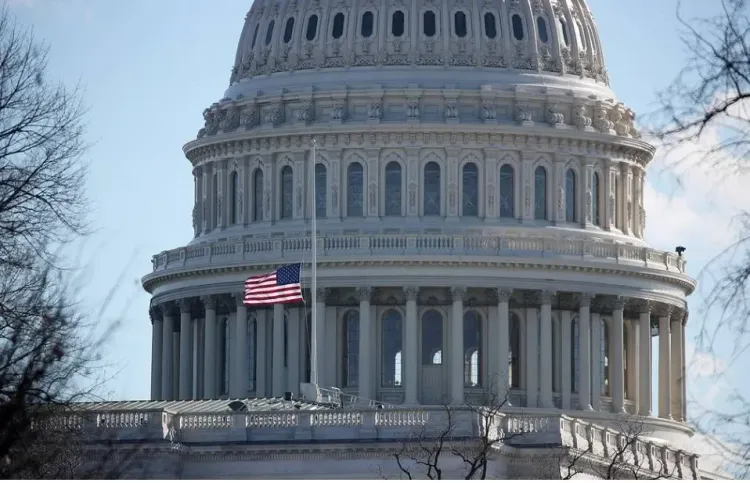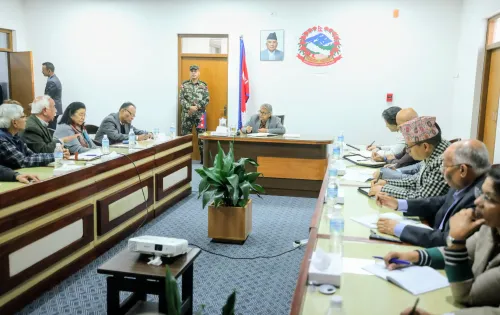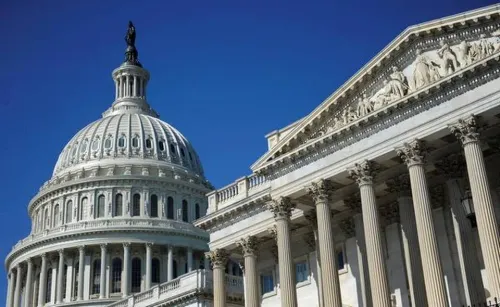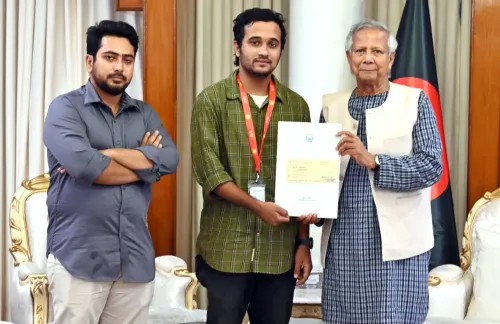Will German, French, and UK leaders decide to visit the US for a meeting with Zelensky?

Synopsis
Key Takeaways
- Leaders' decision on travelling to the US is imminent.
- Focus on peace negotiations in Ukraine.
- Official invitation from the US is necessary.
- Meeting could shape future relations between Ukraine and Russia.
- Coalition leaders to convene for strategic discussions.
Berlin, Aug 17 (NationPress) The administrations of German Chancellor Friedrich Merz, French President Emmanuel Macron, and British Prime Minister Keir Starmer are set to make a decision on Sunday regarding their leaders' potential travel to the US for an upcoming meeting with US President Donald Trump and Ukraine's Volodymyr Zelensky, according to media sources.
As reported by Germany's Bild, the governments of Merz, Starmer, and Macron will coordinate their actions on Sunday, determining who will specifically travel to the US on August 18 for Trump's meeting with Zelensky, as cited by the Russian news agency Tass.
However, the decision hinges on an official invitation from the US, as noted by Bild.
The report indicated that President Trump had extended an offer to Zelensky, suggesting he invite European leaders to the US, though no official invitations have been issued to date.
Bild further emphasized that European leaders are keen to avoid a meeting that is merely for show.
Earlier, an American newspaper, referencing the Elysee Palace, reported that the 'coalition of the willing' would hold a video link meeting on Sunday.
Starmer, Merz, and Macron, who previously announced an upcoming conversation among coalition members without specifying a date, are scheduled to convene online at 3:00 p.m. local time (1:00 p.m. GMT) on Sunday, according to Tass.
The three leaders will deliberate on “next steps concerning peace discussions in Ukraine.”
Additionally, another US newspaper revealed that after his meeting with Putin, President Trump proposed negotiating a peace agreement that would involve Ukraine ceding the remaining parts of the Donbass region to Russia, including areas still under Ukrainian control, in discussions with European leaders.
In return, a ceasefire at existing battlefronts in Ukraine and security assurances for both Kyiv and Europe were offered.
On Friday, Trump and Putin met at the Elmendorf-Richardson military base in Alaska.
Their discussions lasted almost three hours, including a private conversation in Trump's limousine en route to the main negotiation site, along with a subsequent small-group dialogue involving three representatives from each side.
The Russian delegation comprised Kremlin Aide Yury Ushakov and Foreign Minister Sergey Lavrov, while the US side included Secretary of State Marco Rubio and Special Presidential Envoy Steve Witkoff.
Following the discussions, President Putin stated that the primary focus was addressing the conflict in Ukraine.
Trump characterized his summit with Putin as “very productive.”
Subsequently, he reached out to Zelensky, EU leaders, NATO Secretary General Mark Rutte, and European Commission President Ursula von der Leyen.
After the summit and subsequent phone calls, Trump opined that Ukraine and Russia should proceed directly to a final peace agreement, abandoning his previous demand for a ceasefire.
Trump and Zelensky are scheduled to meet at the White House on Monday.
The US leader mentioned that if the discussions with Zelensky yield positive outcomes, a follow-up meeting with Putin would be arranged.









